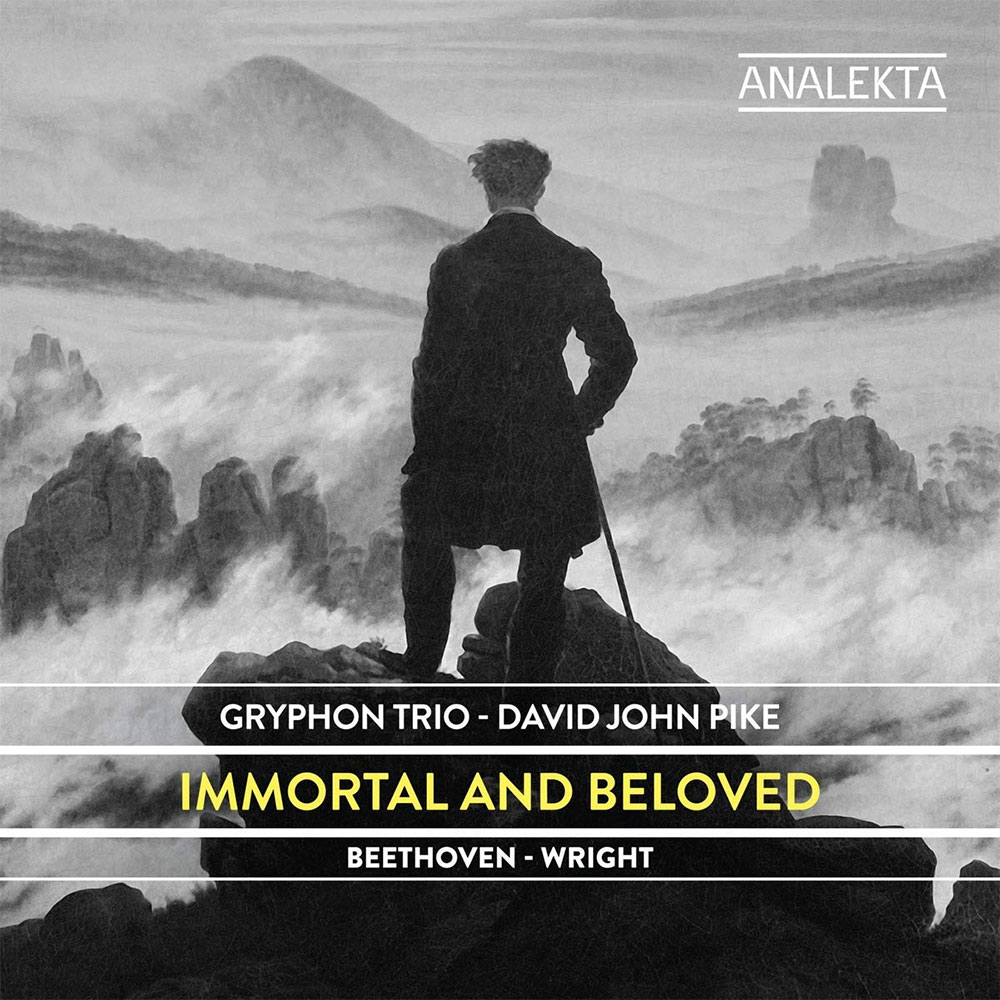Beethoven, Wright: Immortal and Beloved
The programme is of course unique, and the settings by James Wright are well worth a hearing.
Buy this Recording
Two of the three works heard on this recording – the “Archduke” Trio, Op. 97 (1811) and An die ferne Geliebte (“To the distant beloved”), Op. 98 (1816) – were composed during a five-year period that straddles Beethoven’s tumultuous and prolific “middle period” (1803–14) and his increasingly introspective “late period” (1814–25). The third work also involves Beethoven’s passionate outpouring during this period, but of another kind. The chamber art song cycle Briefe an die unsterbliche Geliebte (2012), by Canadian composer James K. Wright, was inspired by three passionate love letters written by Beethoven during the summer of 1812, when he was tending to his health in the Bohemian spa town of Teplitz.
© James Wright 2018
The first public performance of the Archduke Trio was given at Vienna’s Zum römischen Kaiser hotel on April 11, 1814, by violinist Ignaz Schuppanzigh, cellist-composer Josef Linke, and Beethoven at the piano. A second performance was given a few weeks later by popular demand. Sadly, the challenges to which Beethoven’s increasingly profound deafness gave rise were such that this would be his last public appearance as a pianist. Composers Louis Spohr and Ignaz Moscheles heard these performances and reflected on their experience. “On account of his deafness there was scarcely anything left of the virtuosity of the artist which had formerly been so greatly admired,” Spohr wrote. “In forte passages the poor deaf man pounded on the keys until the strings jangled; I was deeply saddened at so hard a fate.” Moscheles was somewhat more generous in his estimation of Beethoven’s brilliance and creative vigour. While acknowledging that Beethoven’s celebrated gifts as a pianist had become severely compromised by his deafness, Moscheles nonetheless noted that opus 97 was a work of transcendent genius and originality, and that in the composer’s playing he “observed many traces of the grand style of playing which I had long recognized in his compositions.”
Dozens of “Immortal Beloved” candidates have been proposed over the years, but during the last 50 years Beethoven scholars have increasingly rallied around the candidacy of the Countess Josephine von Brunswick (1779–1821), a beautiful young Hungarian aristocrat whom the composer first met in 1799, shortly before her marriage to the Count von Deym. When the Count died in 1804, Josephine’s relationship with Beethoven intensified. Sadly, it seems that her social status and parental obligations prevented her from marrying Beethoven, a suitor deemed unsuitable by her family (her hovering matriarch Anna von Brunswick, in particular). Toward the end of the third movement of the “Letters to the Immortal Beloved” cycle, the lyrical opening theme of Beethoven’s “Andante Grazioso in F Major” for piano solo (popularly known as the Andante Favori) can be heard. Beethoven secretly dedicated the Andante Favori to Josephine von Brunswick shortly after the death of her husband, Count von Deym.
Was Josephine indeed Beethoven’s “Immortal Beloved”? We may never know with certainty. However, entries in the diary of Therese von Brunswick (1775–1861), the countess’s sister, provide compelling testimony on the question:
Beethoven, a beautiful mind! Why did my sister Josephine, as widow Deym, not take him as her husband? Josephine’s soul mate! They were born for each other. Maternal affection made her forego her own happiness. The letters found in Beethoven’s bedside table… must have been addressed to Josephine, whom he loved passionately.
